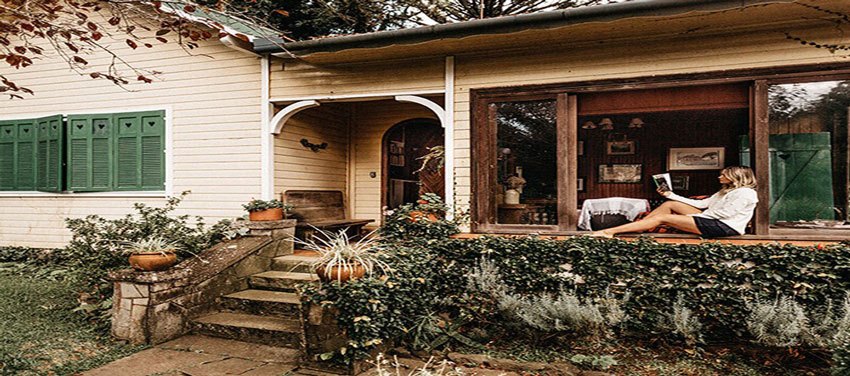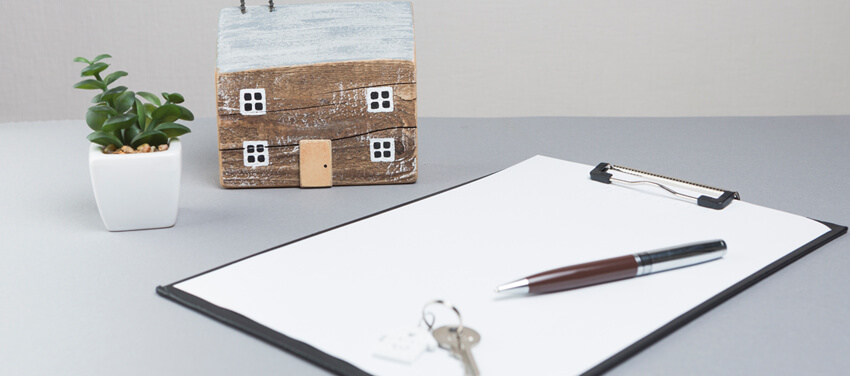All You Need To Know About First Time Buyer Mortgages
If you’re a first time buyer looking for your first mortgage, then the home buying process can seem daunting at first, to say the least! This guide will take you through the first time buyer mortgage process so that you are fully armed with all the information you need in preparation to move on to the next step of applying for your mortgage.
This guide is aimed specifically for first time buyers. If you already have a house and looking to move home then check out our buying a home guide or if you are looking to remortgage then check out our remortgage guide.
Is Getting a Mortgage Right for you?
You’ve got as far as finding this article about getting a first time buyer mortgage, so you’re obviously seriously considering getting a mortgage. But before you continue, it is worth considering whether getting a mortgage is the right move for you.
Buying houses is very popular in the UK, especially since house prices have largely seen an upward trend in the last few years. But careful consideration must be paid to whether you can afford the property in the long term. Financial security is key and if you don’t think you will be in a stable position to afford your property going forward, then some further thought might be required.
So let’s move onto working out if you can really afford a mortgage.
Can you Afford a Mortgage?
As a potential first time buyer, you now need to work out how much you are likely to be able to borrow. This should ideally be done before you start looking for a property so that you know which properties are within your budget. You can use our borrowing calculator to get a rough idea but for an exact answer it is recommended that you speak with a qualified mortgage advisor. You can speak with one of our advisers at any time for free.
Next, decide how much deposit you will be able to pay. The bigger the deposit is, the better the mortgage deal is likely to be. We will discuss deposits in more detail later in this guide.
Remember to factor in the other costs involved with buying a house such as stamp duty and solicitors fees.
And then think carefully about whether you can afford the monthly repayments. You can use our repayment calculator to work out how much your mortgage will actually cost you per month. Consider what would happen if interest rates went up. Your mortgage needs to be within your financial comfort zone and you shouldn’t risk future unaffordability which could result in you losing your home.
What will they Lend to you as a First Time Buyer?
Lenders used to simply multiply your income to work out how much to lend you. A single person could borrow say 4 times their salary and a couple could borrow 3 to 4 times their joint salary. Nowadays, it is far more complicated not just for first time buyers but all borrowers, and it is more about general affordability.
A lender will consider your income compared to your outgoings (bills and other debts) and then work out how much spare cash you have each month to repay a mortgage. You credit card and loan repayments will also be factored into the calculation and it can get quite complicated once you then layer in taxation and other generally monthly costs like food and entertainment. Lenders will also carry out a ‘stress test’ on a higher mortgage rate to see if you could afford your repayments should rates go up.
Speak with one our advisers to see how much lenders are likely to be willing to lend to you as a first time buyer.
Have you got a Decent Deposit?
You will need a substantial amount of cash saved to use as a deposit with your first time buyers mortgage. The more you have, the better interest rate you will be offered by the lender. The deposit proves to the lender that you are less risk as should house prices drop, there should still be some equity in the property. There used to be several deposit-less mortgages available but these days, having a deposit is paramount to being able to get a mortgage.
The minimum deposit required is typically 5% but ideally you will want more than 15% of the property’s value to start seeing a nice drop in the mortgage rate. Basically, the bigger the deposit, the better the interest rate, the lower your monthly repayments and the cheaper the mortgage. There is a big difference between a 5% and 10% mortgage and then the next big jump is 15-20% followed by 30% and 40%.
If there is any way of pushing yourself up to the next deposit level, it is advised that you do just that, even if that means putting off becoming a first time buyer for a few more months. Obviously it is not always easy to be patient and if the perfect property has become available then just make sure you have done your sums before going for it.
You can use our mortgage deposit calculator to work out how long it will take you to save up the necessary funds.
In recent years, the Government has recognized that first time buyers are struggling to get onto the property ladder due to rising house prices, so there are a number of initiatives that have been introduced that could help you buy a property and get a mortgage even if you only have a 5% deposit. There are even a few 100% mortgage options available, however, since the credit crunch they are extremely rare.
See our guides to Help to Buy, Shared Ownership and Right to Buy for further details on how these schemes could help you as a first time buyer. There are also schemes available specifically for first time buyers who are buying new build homes. Our guide to buying a new build property will give you more information.
Another option available to you when getting a first time buyer mortgage is a guarantor mortgage that allows family members to act as a guarantor. A guarantor mortgage allows parents or other close family members to take on the risk of lending to a first time buyer which usually means the lender is willing to lend the first time buyer more money and at a better rate. Our guide to guarantor mortgages will give you more information
Boost your Chances of Getting a First Time Buyer Mortgage
Having a big enough deposit isn’t the only essential requirement to getting a mortgage. As already mentioned, your mortgage lender will strictly check affordability and credit ratings before deciding whether to lend to you. Each lender has their own criteria and you need to make yourself as attractive as possible to a lender to increase your chances of getting a first time buyer mortgage. Here are a few things you can do ahead of making your mortgage application:
Be organised and make sure you have all your paperwork ready well in advance. For a full list of what you are likely to need to submit with your application you can check our detailed guide to mortgage paperwork.
Check your credit rating and if necessary takes steps to improve it. This isn’t a quick fix so do your ground work well in advance
Here are a few tips for improving your credit rating:
Make sure you are on the electoral roll.
Check addresses on your file – check your address is up to date on all active accounts
Break with past relationships – Write to credit agencies asking to be delinked from any ex partners you had joint finances with to ensure their credit history doesn’t affect your credit score
Time it right – County court judgments for unpaid bills are wiped from your record after six years so rather so wait for that to happen until you apply unless they are minor and the rest of your financial profile is strong.
Don’t miss payments or pay late – Set up a direct debit to make at least the minimum repayment on credit cards on time.
Avoid adding a footprint to your file. Keep other applications to a minimum in the months before a mortgage including car insurance and mobile phone.
Don’t withdraw cash on a credit card – this is specifically noted on your file and can be frowned upon.
Never apply again after rejection without thoroughly understanding what has gone wrong and taking steps to remedy the issue.
Stay out of your overdraft.
Avoid payday loans as it indicates poor money management and will often result in an instant decline decision.
See our bad credit guide for further advice about improving your credit rating.
Choosing your First Time Mortgage
There are many mortgage options available to you as a first time buyer and your choice depends on your current and projected financial situation. We suggest you read through this section to get a basic understanding of the types of mortgages available and the main choices you will need to make, further read about the mortgage types in our full guide and then speak with one of our mortgage advisers for advice about the type of mortgage that might suit your situation.
- Repayment mortgage or interest-only?
Repayment (previously known as a capital and interest mortgage) means you are actually paying off some of the debt every month. Interest only means you just pay the interest and after the mortgage term, for example 25 years, you will still need to repay the capital with other funds.
- What type of deal do you want?
Mortgages are usually either fixed or variable. Fixed rate mortgages are have a fixed interest rate for the length of the product and variable mortgages have an interest rate that can fluctuate.
- Do you want your mortgage to be flexible?
Once you’ve decided fixed or variable, the next question is do you need a mortgage that is more flexible? A flexible mortgage means you are able to make an over-payment if you find yourself with some additional spare money but also able to retrieve that money should you need access again. Bear in mind that the more flexible a mortgage is the higher the rates are likely to be.
How to Get Mortgage?
So, you’ve decided that getting a mortgage is definitely the right decision for you and you are ready to be a first time property buyer. You have a basic understanding of what you can afford to borrow and what you can afford to pay back each month.
You have done what you can to be super organised with your paperwork and if necessary, you have taken action to improve your credit ratings. Lastly, you have a good understanding of the types of mortgages that are available to you as a first time buyer and have made a decision about which type of mortgage suits your requirements.
So now you need to know how to actually go about getting a mortgage. There are a few initial choices to make:
- Should you get a mortgage in principle ahead of finding a property or wait and make a full application after you find the right property?
A mortgage in principle typically involves giving a lender an overview of your financial situation and allowing them to run a credit check. In return they will give you a document stating what they should be able to lend you. However, it is important to be aware that this is not a guarantee as it will be subject to a full underwriting review at the application stage. Our mortgage in principle guide will give you further information on this.
- Should you use a broker or do it yourself?
You can of course do all the research and mortgage application process yourself but we recommend that you use a broker, as the mortgage process is rather complicated. Although many brokers do charge, our expert team of mortgage brokers provide their service for free. Speak with our adviser now.
- Choose a mortgage product
Use our best buys tool to compare mortgage products available and then speak with one of our advisers who can work out which products you might be eligible for. Remember, our advice is totally free!
- Making a formal mortgage application
After you have made an offer on a property and it has been accepted by the seller, you need to make a formal mortgage application. This involves giving the lender various personal and financial details, credit scoring and submitting your financial paperwork for review.
It is at this stage that you may be required to pay some fees to your chosen mortgage provider depending on the details of the individual mortgage product. Typically, this would be to cover costs of the property survey and sometimes a small non-refundable administration fee to cover the lender’s initial time investment in your application.
What happens after you have submitted your mortgage application?
The lender will assign an underwriter to your application who will take some time to consider it using various factors including your employment history, credit history, the property you want to buy and the amount you want to borrow. The underwriter will also verify the documentation you provided in your application. They may ask for additional information or documentation to be supplied if anything is not clear or requires further clarification.
For more information, read our informative guide about mortgage process.
Final Considerations
Buying your first property and getting your first mortgage is an exciting yet overwhelming journey. First time buyers are unfortunately in a difficult market at present, with lenders being much more strict about who they lend to than they were 5-10 years ago.
But as discussed, there are many first time mortgage options available to you and after some research, we are sure we will work out which option best suits your situation. Please do seek advice at any time if anything in this first time buyer guide is not clear. And finally, good luck with your home purchase.





